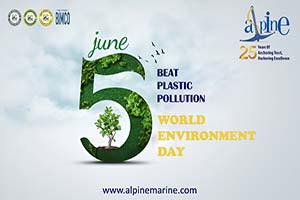
World Environment Day 2025 – Beat Plastic Pollution
Plastic is produced of about 400 million ton every year worldwide; half of this is used for single time and less than 10 % is recycled. It is estimated 11 million tons end as waste and leak into aquatic ecosystems like lakes, rivers and seas annually. Aquatic pollution causes harm to marine and coastal species through ingestion, entanglement, and other dangers. Discarded or burnt single-use plastic pollutes every ecosystem from mountain tops to the ocean floor that cause detrimental effects on human health and harms biodiversity. Microplastics, tiny plastic particles of diameter up to 5mm in the seas now outnumber stars in our galaxy are able to find their way into food, water and air. This year World Environment Day, to mobilize communities worldwide to implement and advocate for solutions of plastic pollution problem, governments, companies and other stakeholders must scale up and speed preventive and precautionary measures to resolve crisis and focus the budding systemic and scientific approaches with evidence on the impacts of pollution being caused by plastic and drive momentum to refuse, reduce, reuse, recycle, and rethink plastics use to shape a more clean and more sustainable future.
|
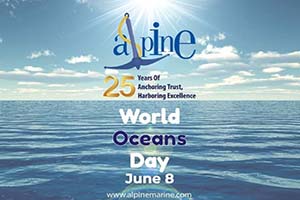
World Oceans Day 2025 – Wonder: Sustaining What Sustains Us
World Oceans Day is a global observance that reflects on the exciting and inspiring nature of the oceans and domineering to protect them from environmental threats for sustainable future and generations. World Oceans Day delivers prospects and opportunity to honor, support shield to conserve the Ocean. Over 70% of earth’s surface is being covered by oceans, providing crucial environment and ecosystem such as climate regulation, oxygen production, and food resources. Ocean is natural habitat to massive group of biodiversity and essential to the livelihoods of millions worldwide. Besides the indispensable role oceans play in supporting life, livelihoods, and planetary health, challenges like climate change, overfishing, or pollution threaten these vital systems.
|
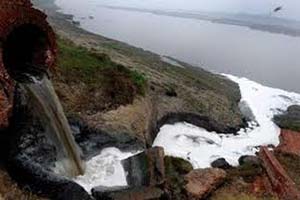
Stricter Waste Regulations at Coasts and Ports
Ministry of Maritime Affairs called for urgent, coordinated action to combat plastic pollution and modernize Pakistan's maritime infrastructure. Over 90% of Pakistan's trade moves through seaports, he highlighted the sector's contribution of more than 10% to GDP and employment for over two million people. In a statement released on World Environment Day, the alignment of maritime policies with global climate goals to safeguard the country's over 1,000-km coastline and marine biodiversity. Millions of mangrove saplings have been already planted, which serve as natural barriers against pollution and vital nurseries for marine life. Indus Delta of Pakistan accommodates one of the world's largest mangrove ecosystems. The ministry is also working with port authorities and shipping stakeholders to enforce stricter waste regulations. Restoration and renovation efforts with support from domestic communities and international partners, are vital to coastal resilience.
|
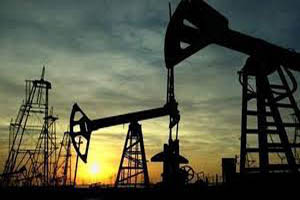
Pakistan Planned 15% Hike in Refining Capacity by 2027
The Integrated Energy Planning Initiative, aims to reshape the energy landscape through data-driven decision-making and policy formulation. The Annual Plan for fiscal year 2025-26, Pakistan aims to increase its refining capacity by 15% by 2027 through various plant upgrade projects. The country’s energy sector is undergoing transformative efforts to address energy security, affordability, and sustainability. The Petroleum Division’s current developmental projects consist of the extension of Pakistan Petroleum Corehouse and the Strategic Underground Gas Storage project, which objects to ensure sustainable operations and facilitate oil and gas exploration. Pakistan has set targets for crude oil production at 24.24 million barrels, natural gas production at 1.24 tcf, local LPG supply has been set at 0.75 million tons, to address the shortfall in domestic gas supplies Pakistan plans to import 7.5 million tons of LNG for FY26.
|
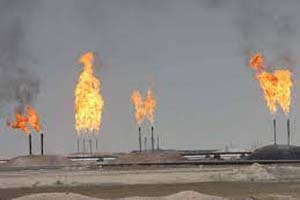
Gas and Condensate Discovery from Exploratory Well Faakir-1
Oil & Gas Development Company Limited (OGDCL) has announced the discovery of gas and condensate from the exploratory well Faakir-1, located within Bitrisim Exploration License in District Khairpur, Sindh. Faakir-1 was spudded on December 31, 2024, as an exploratory well and drilled to a total depth of 4,185 meters in the Sembar Formation. The cumulative test results showed a production of 6.4 million standard cubic feet of gas per day and 55 barrels per day of condensate through a 32/64″ choke. The wellhead flowing pressures recorded were 450 psi for DST-1 and 850 psi for DST-2, respectively. The well is operated by OGDCL, holding a 95% working interest, in joint venture with Government Holdings (Private) Limited, which holds the remaining 5% interest.
|

Agreement between ADNOC and PIOL
For the development of Offshore Block 5 in Abu Dhabi an agreement has been signed between Abu Dhabi National Oil Company (ADNOC) and Pakistan International Oil Limited (PIOL), a joint venture formed by Pakistan Petroleum, OGDCL, Mari Energies, and Government Holdings Pakistani energy giants. The Production Concession Agreement has been signed between the Supreme Council for Financial and Economic Affairs (SCFEA) on behalf of the Government of the Emirate of Abu Dhabi, ADNOC and PIOL. Upon execution of the PCA, the partnership will be between ADNOC and Pakistan International Oil Limited with PIOL holding 40% participating interest and ADNOC hold the remaining 60%, for the exploration and development of the offshore block.
|
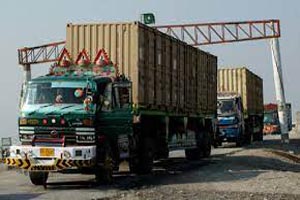
Barter Trade Mechanism Amendments
A new mechanism has been outlined by the Ministry of Commerce for barter trade with Iran as part of current efforts to develop and boost bilateral trade. Under the proposed mechanism, amendments will be made to the existing SRO to allow for a more streamlined process, including removing the need for verification by Pakistan’s missions abroad, expanding and verification of sanctioned and non-sanctioned products, eligible for barter trade and bringing them closer in line with the Export Policy Order. However, certification authority for verifying transactions are yet to be resolved. This decision follows consultations with various stakeholders, including the State Bank of Pakistan (SBP), which has been reluctant to support formal trade with Iran due to US sanctions. On approval of the proposed amendments by stakeholders, a final notification by the Ministry of Commerce will issue. Proposed amendments are important in institutionalizing barter trade and expanding Pakistan’s export capacity to Iran
|

Tractor Policy for Agri-Mechanization
To accelerate agricultural mechanization by establishing a coherent and forward-looking National Tractor Policy aimed at boosting agricultural mechanization, for better crop yields productivity, reduced post-harvest losses and export potential. $400 million are being contributed by the tractor industry annually to the economy and comprehensible policy could elevate this to $1 billion through greater exports, job creation, and technology transfer. The reasonable access to modern tractors is indispensable for refining farm yield and productivity with ensuring national food security.
|
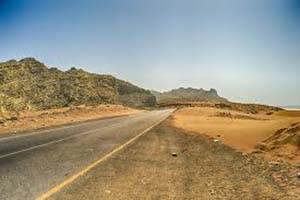
Baluchistan to Tackle Environmental Impacts
Intended to mitigate the impacts of climate change and supporting sustainable development establishment of a climate change fund has been approved by the Baluchistan government. Initiative is a timely step to address environmental challenges and broader commitment to environmental conservation, which has been prioritized as a key aspect of its sustainable development plan of the provincial government. The Baluchistan Climate Change Fund will focus on implementing practical measures to provide a healthier and safer environment for the people of the province and is expected to provide a structured approach to managing climate risks and supporting nature compatible development with promoting environmental awareness. The primarily focus on promoting climate adaptation, mitigation strategies, conserving natural resources, and restoring ecosystems using nature-based solutions noting its potential to address the region’s growing environmental challenges.
|
|
© 2025 Alpine Marine Services Private Limited
all rights reserved
|
|
|